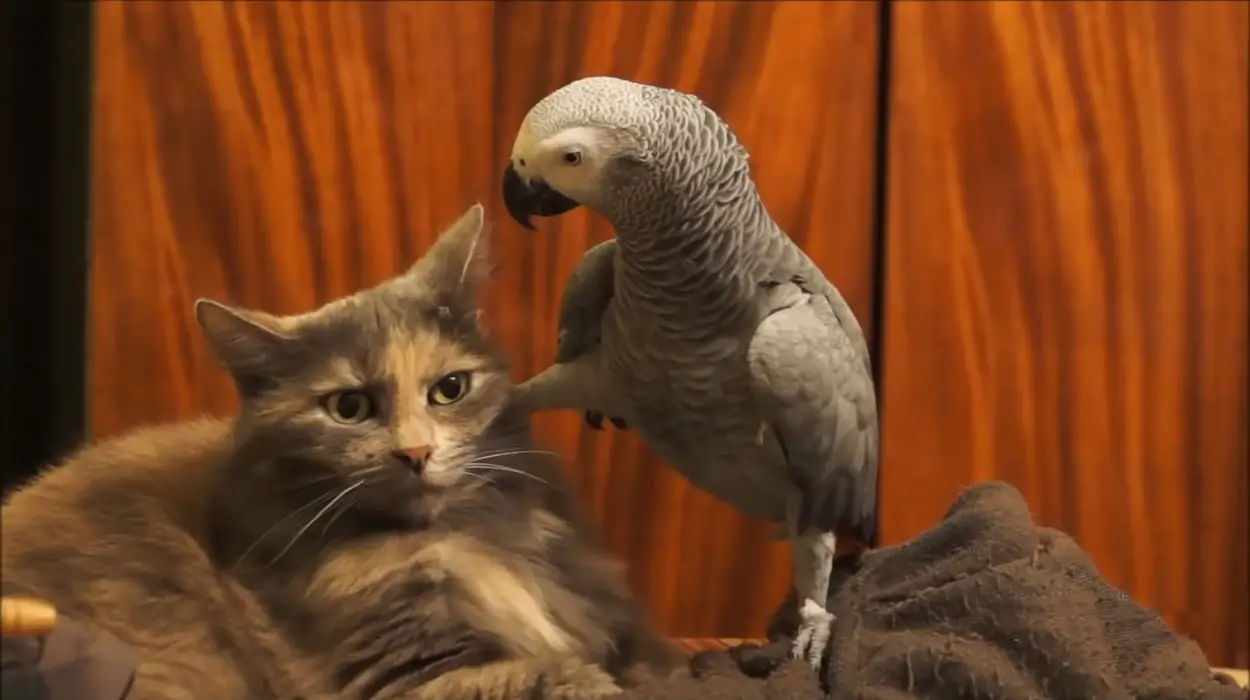Is Cat Saliva Toxic to Birds: Let’s Find Out!
There’s nothing happier than seeing your cats and birds becoming friends. But, from an in-depth perspective, the interaction is not entirely amusing.
Cat saliva can be toxic to birds for several reasons. One of the reason is cat saliva contains Pasteurella multocida bacteria which causes infection to birds. This is why there are a few things you need to maintain if you have cats and birds as family members.
Even if you don’t have both as pets, these two beloved members of the animal kingdom often cross paths in the neighborhood or your home.
It’s definitely intriguing to see them interact. Still, it’s essential to address the potential concerns regarding the effect of cat saliva on birds. You must keep reading if your feathered friend is close to a cat. It’ll save you some visits to the vet.
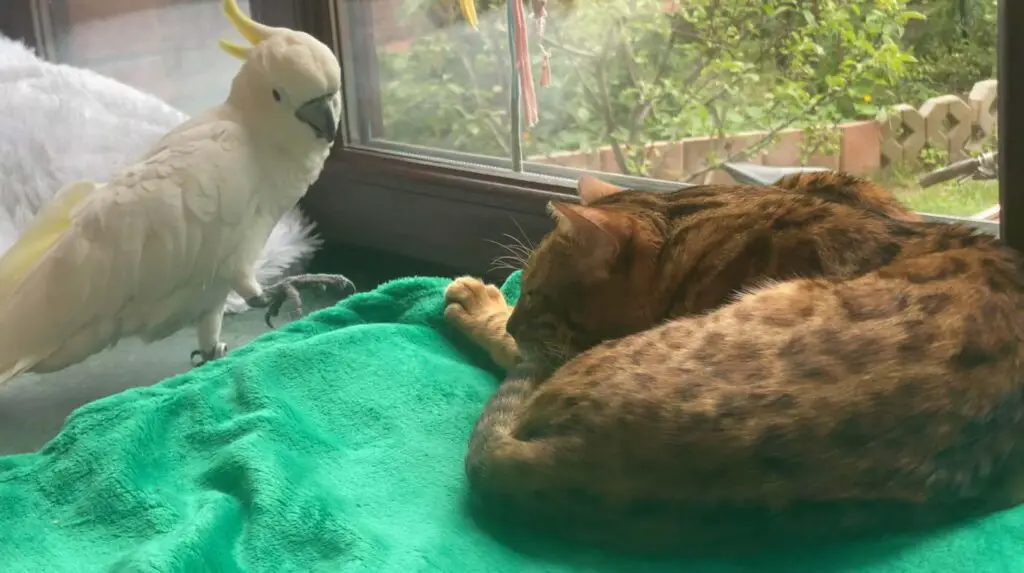
What Is It About Cat Saliva and Birds?
Cat saliva is, in fact, an incredible substance and an important component in feline physiology. Besides grooming and cleaning their fur, cats use their saliva for digestion. Cats can do all of this because their saliva contains a variety of enzymes, including lipase and amylase.
These are known to break down oils and starches during digestion and grooming. Not only this, but this saliva can also destroy dirt and debris. Overall, it’s powerful.
On the other hand, most birds are quite vulnerable. They possess unique physiological traits that make them particularly susceptible to external substances. Their small size and delicate respiratory system can turn a minor irritant into a significant disease.
In fact, as birds breathe more rapidly than mammals, their respiratory system is more or less exposed to a higher volume of air and particles. This increased respiration naturally leads to more rapid environmental absorption of toxins and irritants. Thus, it’s easy for a bird to inhale the toxic components of cat saliva.
The main problem is that birds have a super delicate immune system. Well, it’s delicate compared to larger animals. In other words, birds need to be equipped to combat infections.
As birds are not naturally meant to stay home, their immune system primarily focuses on defending against airborne pathogens. This is why they often struggle to effectively fight off bacteria introduced to contact with foreign substances, like cat saliva.
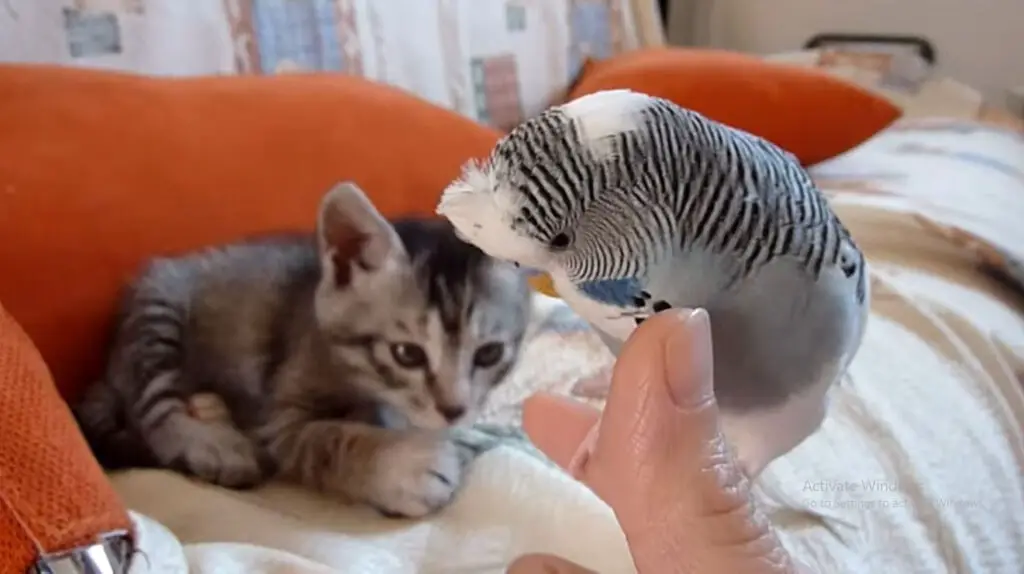
What Does Cat Saliva Do to Birds?
Let’s clarify one thing first. Cat saliva isn’t necessarily toxic and harmless for many animals. But it poses risks to birds. While a cat licks its fur, Pasteurella multocida bacteria can be transferred onto its claws or paws.
Suppose the cat scratches or bites a bird because of its natural instinct. In that case, the cat’s saliva can penetrate its circulatory system.
Things can happen the other way around as well. If a cat has just licked its fur and your bird chooses to bite the cat, then a good amount of saliva will be transmitted into the bird’s system.
The worst-case scenario is if the cat’s scratch or bite opens up a wound. In such cases, infection is more or less certain. Scientific studies show that, of the birds rescued alive from the mouths of cats, approximately 40 per cent died from the direct effects of the bites, and approximately 60 per cent died from Pasteurella multocida infection.
Cat saliva can carry certain other diseases that are transmittable to birds. Certain conditions like feline leukemia and feline immunodeficiency virus (or FIV) are more specific to cats. But they highlight the potential for cross-species disease transmission.
Cats carriers of these viruses can unknowingly transmit them to birds through bites or scratches. Even if a cat doesn’t carry any fatal disease, their enzymes can be strong enough to disrupt the internal functionality of birds.
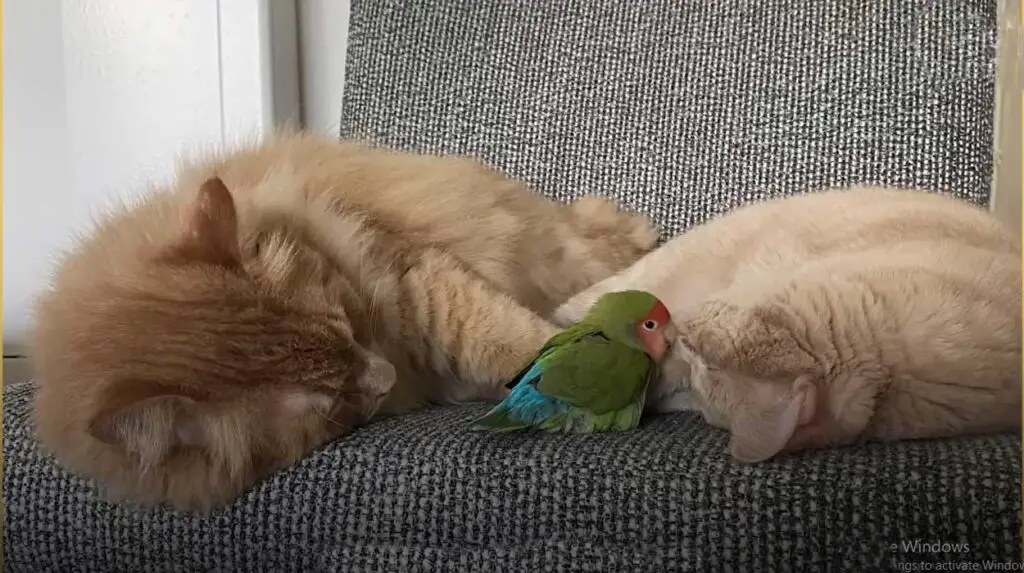
Keeping Birds Safe from Cat Saliva: 3 Simple Things You Can Do
You are a responsible cat parent because you chose to read this article. Knowing about a problem isn’t enough; it’s only half. The latter half is knowing and implementing the solutions to keep your birds safe from all kinds of cat saliva. Here’s what you can do:
Keep the Cats Indoors
This may not sound like much, but this is the most effective way to protect birds from cat saliva. Not only this, but this particular practice can keep potential harm at bay.
Indoor cats are not exposed to substances that are dangerous to them. This makes their saliva somewhat less harmful. In addition, indoor cats tend to show less wild behavior. They become docile over time. They are less likely to scratch, bite, or hurt your bird.
However, there are some factors to remember, even with an indoor cat. For example, when you leave your cat and birds in the same house, make sure they are in two rooms separated by walls and a door.
You can maintain this practice even when you are sleeping as well. In short, try to keep them separated when you are not paying attention to what your pets are doing.
Create Different Kinds of Spaces
Each animal practices certain behaviors more often than others. For example, cats are natural climbers but don’t stay in one place long. In contrast, a bird will stay in one place for a long time.
You have to create the right spaces to allow each of the pets to practice their natural behavior. While in the process of creating these spaces, make sure to keep them properly separated. If you need more space, this is also not a problem.
Create elevated spaces for your pet birds to perch while keeping some high cat beds for your cats to climb up and rest. This way, even if your cat feels its hunting urges tingling, it won’t be able to reach the bird and cause them any harm.
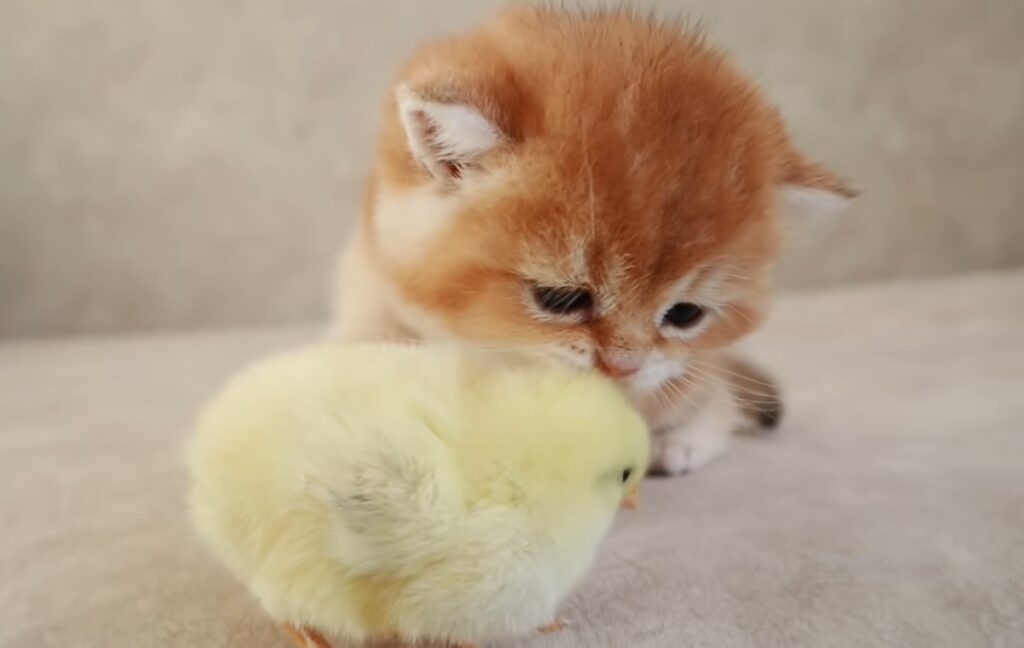
Training and Socialization
Giving proper training to your pets can alleviate all worries for a lifetime. Just as you can train cats to understand boundaries, you can also engage them in positive reinforcement training. This will discourage their hunting behaviors.
What helps the most is offering your cat treats, praise, and extra playtime whenever they behave well. You’ll be surprised to see how well it redirects their instincts away from targeting birds.
Vaccination
Even if you are not concerned about your cat biting your bird, you should have your feline buddy vaccinated. Unfortunately, there aren’t vaccines for all kinds of possible diseases out there, but options are available for the most common ones.
This way, everything will be fine, even if the cat scratches or bites the bird. Most importantly, if you have a cat, you should get it vaccinated, even if you don’t have a bird.
Make Use of the Toys
No matter what you do, you won’t be able to completely eliminate your cat’s hunting instinct. But you can definitely keep it in check. How? Simple – keep them busy with toys.
Cats are very organized with their time. Just as they spend a big chunk of their time just lying around, they also get their own share of physical exercise when they feel like it.
These physical activities are mainly related to their hunting instinct. To keep it at bay, you have to keep your cat busy. Puzzle feeders, interactive toys, and indoor climbing structures are simple devices that can keep your cat mentally stimulated and physically engaged for a long time.
My personal favorite is the puzzle feeder. It dispenses a small amount of food as the cat interacts with the device. This not only stimulates their problem-solving skills but also provides a hunting-like experience.
Similarly, interactive toys like feather wands and laser pointers can engage your cat’s predatory instincts and provide an outlet for their energy. Indoor climbing structures have similar effects.
The benefit of all these is that when your cat is busy with all these activities, it won’t target your bird/s. As a result, they will stay safe from cat saliva.
My Final Few Words for You
Cross-species diseases can be extremely harmful, especially when a species is as delicate as birds. However, nothing should be an issue if you are aware of and maintain what needs to be done. To answer the initial and central question, yes, cat saliva is toxic to birds.
But it’s only harmful if it interacts with the internal system of the bird. You shouldn’t have to worry about it if you have given this entire write-up a read. It has everything you need to know, from why cat saliva is toxic to how you can protect your bird from this.
You have to put in some extra effort when you have two diverse kinds of pets in your house. At the end of the day, it’s all worth it.
